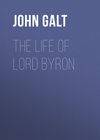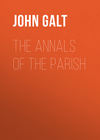Kitabı oku: «The Life, Studies, and Works of Benjamin West, Esq.», sayfa 9
Chap. III
Archbishop Drummond's Address in procuring for Mr. West the Patronage of the King. – Singular Court Anecdote of a Lady of Fashion. – Character of the King in his Youth. – Anecdotes of the King and Queen. – The King employs Mr. West to paint the Departure of Regulus. – Mr. West's Celebrity as a Skater, – Anecdote of Lord Howe. – His Fame as a Skater of great Service in his professional Success.
The coldness with which Archbishop Drummond's scheme for raising three thousand guineas had been received by the persons to whom he had applied, and the prejudice which he found almost universally entertained against the efforts of living genius, chagrined him exceedingly. He regarded the failure as a stigma on the age, and on his country; and, as a public man, he thought it affected himself personally. With this feeling, he declared to the gentlemen who had exerted themselves in the business, that he saw no way of engrafting a taste for the fine arts on the British public, unless the King could be so far engaged in the attempt, as to make it fashionable to employ living artists, according to the bent of their respective talents. But, about this period, the affair of Wilkes agitated the nation; and the Duke of Portland and Lord Rockingham, who were among the most strenuous of Mr. West's friends, being both of the Whig party, undervalued the importance attached to His Majesty's influence and countenance. The Archbishop was not, however, discouraged by their political prejudices; on the contrary, he thought that His Majesty was one of those characters who require to be personally interested in what it is desired they should undertake; and he resolved to make the attempt. The address with which His Grace managed the business, evinced great knowledge of human nature, and affords a pleasing view of the ingenuousness of the King's disposition.
When the picture of Agrippina was finished, the Archbishop invited the most distinguished artists and amateurs to give him their opinion of the work; and satisfied by the approbation which they all expressed, he went to court, and took an opportunity of speaking on the subject to the King, informing His Majesty, at the same time, of all the circumstances connected with the history of the composition; and on what principle he had always turned his conversations with Mr. West to excite an interest for the promotion of the arts in the minds of his family. The dexterity with which he recapitulated these details produced the desired effect. The curiosity of the King was roused, and he told the Archbishop that he would certainly send for the Artist and the picture.
This conversation probably lasted longer than the usual little reciprocities of the drawing-room; for it occasioned a very amusing instance of female officiousness. A lady of distinguished rank, having overheard what passed, could not resist the delightful temptation of being the first to communicate to Mr. West the intelligence of the honour that awaited him. On quitting the palace, instead of returning home, she went directly to his house, and, without disclosing her name, informed him of the whole particulars of the conversation which had passed between the Archbishop and the King. In the evening, Barnard, who had been an attendant on the King from the cradle, and who was not more attached to His Majesty, than he was himself in return affectionately beloved, came to Mr. West, and requested him to be in attendance next morning at the Queen's house, with the picture of Agrippina. In delivering the message, this faithful servant was prompted by his own feelings to give the Artist some idea of His Majesty's real character, which at that time was very much misrepresented to the public; and Mr. West during the long term of forty years of free and confidential intercourse with the King, found the account of Barnard to be in every essential and particular point correct.
The King was described to him as a young man of great simplicity and candour of disposition, sedate in his affections, and deeply impressed with the sanctity of principle; scrupulous in forming private friendships; but, when he had taken any attachment, not easily swayed from it, without being convinced of the necessity and propriety of so doing.
At the time appointed, Mr. West was in attendance with the picture; and His Majesty came into the room where he was waiting. After looking at it some time with much apparent satisfaction, he enquired if it was in a proper light; and, on being told that the situation was certainly not the most advantageous, he conducted the Artist through several apartments himself, till a more satisfactory place was found. He then called several of the domestics into the room, and, indeed, assisted them himself to remove the picture. When the servants had retired, and he had satisfied himself with looking at it, he went out of the apartment and brought in the Queen, to whom he introduced the Artist with so much warmth, that Mr. West felt it at the moment as something that might be described as friendliness.
The Queen, though at this period very young, possessed a natural graciousness of manner, which her good sense and the consciousness of her dignity rendered peculiarly pleasing; so that our Artist was not only highly gratified by the unexpected honour of this distinguished introduction, but delighted with the affability and sweetness of her disposition.
When Their Majesties had examined the picture, the King observed that he understood the same subject had seldom been properly treated. Mr. West answered, that it was, indeed, surprising it should have been neglected by Poussin, who was so well qualified to have done it justice, and to whose genius it was in so many respects so well adapted. His Majesty then told the Queen the history of the picture before them, dwelling with some expressions of admiration on the circumstance of the sketch having been made in the course of one evening after the artist had taken coffee with the Archbishop of York, and shown to His Grace the next morning. Turning briskly round to Mr. West, he said, "There is another noble Roman subject which corresponds to this one, and I believe it also has never been well painted; I mean the final departure of Regulus from Rome. Don't you think it would make a fine picture?" The Artist replied, that it was undoubtedly a magnificent subject. "Then," said His Majesty, "you shall paint it for me;" and, ringing the bell in the same moment, ordered the attendant who answered to bring the volume of Livy in which the event is related, observing to the Queen, in a sprightly manner, that the Archbishop had made one of his sons read to Mr. West; but "I will read to him myself the subject of my picture;" which, on the return of the servant with the book, he did accordingly. And the Artist was commanded to come with the sketch as soon as possible.
The Archbishop was highly delighted at the successful result of his scheme, and augured from the event the happiest influence to the progress of the arts; nor has his patriotic anticipations been unrewarded; for, without question, so great and so eminent a taste for the fine arts as that which has been diffused throughout the nation, during the reign of George the Third, was never before produced in the life-time of one monarch, in any age or country.
But in relating the different incidents which contributed to bring Mr. West into favourable notice, there is one of a peculiar nature, which should not be omitted. During winter, at Philadelphia, skating was one of the favourite amusements of the youth of that city, and many of them excelled in that elegant exercise. Mr. West, when a boy, had, along with his companions, acquired considerable facility in the art; and having become exceedingly fond of it, made himself, as he grew up to manhood, one of the most accomplished skaters in America. Some of the officers at that time quartered there, also practised the amusement; and, among others, Colonel Howe, who afterwards succeeded to the title of his elder brother, and who, under the name of General Howe, is so well known in the disastrous transactions of the subsequent civil war, which ended in establishing the independence of the United States. In the course of the winter preceding Mr. West's departure for Italy, they had become acquainted on the ice. In Italy Mr. West had no opportunity of skating; but when he reached Lombardy, where he saw so much beautiful frozen water, he regretted that he had not brought his skates with him from America. The winter, however, which succeeded his arrival in England, proved unusually severe; and one morning, when he happened to take a walk in St. James's park, he was surprised to see a great concourse of the populace assembled on the canal. He stopped to look at them, and seeing a person who lent skates on hire, he made choice of a pair, and went on the ice. A gentleman who had observed his movements, came up to him as he retired to unbuckle the skates, and said, "I perceive, Sir, you are a stranger, and do not perhaps know that there are much better places than this for the exercise of skating. The Serpentine River, in Hyde Park, is far superior, and the basin in Kensington Gardens still more preferable. Here, only the populace assemble; on the Serpentine, the company, although better, is also promiscuous; but the persons who frequent the basin in the Gardens are generally of the rank of gentlemen, and you will be less annoyed among them than at either of the other two places."
In consequence of this information, on the day following, Mr. West resolved to visit the Gardens; and, in going along Piccadilly with that intention, bought a pair of skates, which, on reaching the margin of the ice, he put on, After a few trial-movements on the skirts of the basin, like a musician tuning his violin before attempting a regular piece of composition, he dashed off into the middle of the company, and performed several rounds in the same style which he had often practised in America. While engaged in this manner, a gentleman called to him by name; and, on stopping, he found it was his old acquaintance Colonel Howe.
The Colonel immediately came up, and exclaimed, "Mr. West, I am truly glad to see you in this country, and at this time. I have not heard of you since we parted on the wharf at Philadelphia, when you sailed for Italy; but I have often since had occasion to recollect you. I am, therefore, particularly glad to see you here, and on the ice; for you must know that, in speaking of the American skaters, it has been alleged, that I have learnt to draw the long bow among them; but you are come in a lucky moment to vindicate my veracity."
He then called to him Lord Spencer Hamilton, and some of the Cavendishes, who were also on the ice, and introduced Mr. West to them as one of the American skaters, of whom they had heard him so often speak, and would not credit what he had said of their performance; and he requested Mr. West to show them what, in Philadelphia, was called the Salute. Mr. West had been so long out of practice, that he was at first diffident of attempting this difficult and graceful movement: but, after a few trials, and feeling confidence in himself, he at last performed it with complete success. Out of this trivial incident, an acquaintance arose between him and the young noblemen present. They spoke of his talents as a skater; and their praise, in all their usual haunts, had such an effect, that, in the course of a few days, prodigious crowds of the fashionable world, and of all descriptions of people, assembled to see the American skater. When it was afterwards known to the public that he was an artist, many of the spectators called at his rooms; and he, perhaps, received more encouragement as a portrait-painter on account of his accomplishment as a skater, than he could have hoped for by any ordinary means to obtain.
Chap. IV
The King's personal Friendship for Mr. West. – Circumstances which led to the Establishment of the Royal Academy. – First Exhibition of the Works of British Artists. – The Departure of Regulus finished, and taken to Buckingham House. – Anecdote of Kirby. – The Formation of the Royal Academy. – Anecdote of Reynolds. – The Academy instituted.
The King, at the period when he was pleased to take Mr. West under his own particular patronage, possessed great conversational powers, and a considerable tincture of humour. He had read much, and his memory was singularly exact and tenacious: his education had, indeed, been conducted with great prudence, and, independent of a much larger stock of literary information than is commonly acquired by princes, he was fairly entitled to be regarded as an accomplished gentleman. For the fine arts he had not, perhaps, any natural taste; he had, however, been carefully instructed in the principles of architecture by Chambers, of delineation by Moser, and of perspective by Kirby; and he was fully aware of the lustre which the arts have, in all ages, reflected on the different countries in which the cultivation of them has been encouraged to perpetuate the memory of great events. His employment of Mr. West, although altogether in his private capacity, was therefore not wholly without a view to the public advantage, and it is the more deserving of applause, as it was rather the result of principle than of personal predilection.
When Mr. West had made a sketch for the Regulus, and submitted it to His Majesty, after some conversation, as to the dimensions, the King fixed on an advantageous part of the walls in one of the principal apartments, and directed that the picture should be painted of a size sufficient to fill the whole space. During the time that the work was going on, the Artist was frequently invited to spend the evening at Buckingham-house, where he was often detained by the King as late as eleven o'clock, on topics connected with the best means of promoting the study of the fine arts in the kingdom. It was in these conversations that the plan of the Royal Academy was digested; but it is necessary to state more particularly the different circumstances which co-operated at this period to the formation of that valuable institution.
At the annual exhibitions of the paintings and drawings, which obtained the premiums of the Society for the Encouragement of Arts, Agriculture, and Commerce, it was then customary with artists to send occasionally their works to be exhibited with those of the competitors, as a convenient method of making themselves known to the public. But the visitors hearing from the newspapers only of the pictures which had gained the prizes, concluded that they were the best in the exhibition; and the works of the matured artists were overlooked in the attention paid to the efforts of juvenile emulation. This neglect mortified the artists, and induced them to form themselves into an association for the exhibition of their own productions. The novelty of this plan attracted much attention, and answered the expectations of those with whom it originated. Such was the state of things with the artists when Mr. West came to England; and to the first exhibition, after his arrival, he sent, as I have already mentioned, three pictures. The approbation which these works obtained, induced the association to elect him one of the directors, and he held this situation till, the society beginning to grow rich by the receipts of the exhibitions, the management of its concerns became an object of ambition. This association was incorporated in 1765, under the designation of the Incorporated Artists.
Chambers and Payne, who were leading members in the Society, being both architects, were equally desirous that the funds should be laid out in the decoration of some edifice adapted to the objects of the institution. This occasioned so much debate, division, and rivalry, among their respective partisans, that Mr. West was induced to resign the office of director, and to withdraw along with Mr. Reynolds (afterwards Sir Joshua) and others, disgusted with the bickering animosities which disgraced the proceedings at their meetings. This transaction made some noise at the time, and it happened on the very day when Mr. West waited on the King, with his sketch of the Departure of Regulus, that the newspapers contained some account of the matter. His Majesty enquired the cause and particulars of the schism, and Mr. West, in stating what they were, mentioned that the principles of his religion made him regard such proceedings as exceedingly derogatory to the professors of the arts of peace.
This led the King to say that he would gladly patronise any association which might be formed more immediately calculated to improve the arts. Mr. West, after retiring from the palace, communicated this to Chambers and Moser, and, upon conferring on the subject with Mr. Coats, it was agreed that the four should constitute themselves a committee of the dissenting artists, to draw up the plan of an academy. When this was mentioned to His Majesty, he not only approved of their determination, but took a great personal interest in the scheme, and even drew up several of the laws himself with his own hand. Nor should one remarkable circumstance be omitted; he was particularly anxious that the whole design should be kept a profound secret, being apprehensive that it might be converted into some vehicle of political influence.
In the mean time the picture of the Departure of Regulus was going forward, and it was finished about the time that the code of rules for the academy was completed. The incorporated artists were also busy, and had elected as their president Mr. Kirby, who had been preceptor in perspective to the King, and who had deservedly gained great celebrity by his treatise on the principles of that branch of art. Kirby, having free access to the royal presence, and never hearing from His Majesty any thing respecting the academy, was so satisfied in his own mind that the rumours, respecting such an institution being intended, were untrue, that, in his inaugural address from the chair, he assured the incorporated artists there was not the slightest intention entertained of establishing a Royal Academy of Art.
When the Departure of Regulus was finished, the King appointed a time for Mr. West to bring the picture to Buckingham-house. The Artist having carried it there, His Majesty, after looking at it some time, went and brought in the Queen by the hand, and seated her in a chair, which Mr. West placed in the best situation for seeing the picture to advantage. While they were conversing on the subject, one of the pages announced Mr. Kirby; and the King consulted Her Majesty in German about the propriety of admitting him at that moment. Mr. West, by his residence among the German inhabitants of Lancaster in America, knew enough of the language to understand what they said, and the opinion of the Queen was that Kirby might certainly be admitted, but for His Majesty to take his own pleasure. The attendant was in consequence ordered to show him in, and Mr. West was the more pleased at this incident, as it afforded him an advantageous opportunity of becoming personally known to Kirby, with whom, on account of his excellent treatise, he had for some time been desirous to become acquainted.
When Kirby looked at the picture he expressed himself with great warmth in its praise, enquiring by whom it had been painted; upon which the King introduced Mr. West to him. It would perhaps be doing injustice to say that the surprise with which he appeared to be affected on finding it the production of so young a man, had in it any mixture of sinister feeling; but it nevertheless betrayed him into a fatal indiscretion. As a preceptor to the King, he had been accustomed to take liberties which ought to have terminated with the duties of that office; he, however, inadvertently said, "Your Majesty never mentioned any thing of this work to me." The tone in which this was uttered evidently displeased the King, but the discretion of the unfortunate man was gone, and he enquired in a still more disagreeable manner, "Who made this frame?" Mr. West, anxious to turn the conversation, mentioned the maker's name; but this only served to precipitate Mr. Kirby into still greater imprudence, and he answered somewhat sharply, "That person is not Your Majesty's workman;" and naming the King's carver and gilder said, "It ought to have been made by him." The King appeared a good deal surprised at all this, but replied in an easy good-humoured way, "Kirby, whenever you are able to paint me a picture like this, your friend shall make the frame." The unhappy man, however, could not be restrained, and he turned round to Mr. West, and in a tone which greatly lessened the compliment the words would otherwise have conveyed, said, "I hope you intend to exhibit this picture." The Artist answered, that as it was painted for His Majesty, the exhibition must depend on his pleasure; but that, before retiring, it was his intention to ask permission for that purpose. The King immediately said, "Assuredly I shall be very happy to let the work be shown to the public." – "Then, Mr. West," added Kirby, "you will send it to my exhibition," (meaning to the exhibition of the Incorporated Artists). "No," interposed the King, firmly, "it must go to my exhibition, – to the Royal Academy." Poor Kirby was thunderstruck; but only two nights before, in the confidence of his intercourse with the King, he had declared that even the design of forming such an institution was not contemplated. His colour forsook him, and his countenance became yellow with mortification. He bowed with profound humility, and instantly retired, nor did he long survive the shock.
On the day following, a meeting of the artists who had separated themselves from the incorporated association, was to be holden in the evening at the house of Wilton the sculptor, in order to receive the code of laws, and to nominate the office-bearers of the Academy. In the course of the morning, Mr. Penny, who was intended to be appointed professor of painting, called on Mr. West and mentioned that he had been with Reynolds, and that he thought, for some unfathomable reason or another, that distinguished artist would not attend the meeting. Soon after, Moser likewise called, and stated the same thing. Mr. West was much perplexed at this information; for it had been arranged with the King that Reynolds, although not in the secret, nor at all consulted in the formation of the Academy, should be the president. He therefore went immediately to his house, and finding him disengaged, mentioned, without alluding to what he had heard, the arrangements formed for instituting an academy, and that a meeting of thirty artists named by the King, of the forty members of which it was intended the Academy should consist, was that evening to take place at Wilton's. Reynolds was much surprised to hear matters were so far advanced, and explained to Mr. West that Kirby had assured him in the most decided manner, that there was no truth whatever in the rumour of any such design being in agitation, and that he thought it would be derogatory to attend a meeting, constituted, as Kirby represented it, by persons who had no sanction or authority for doing what they had undertaken. To this Mr. West answered, "As you have been told by Mr. Kirby that there is no intention to form any institution of the kind, and by me that there is, that even the rules are framed, and the officers condescended on, yourself to be president, I must insist on your going with me to the meeting, where you will be satisfied which of us deserves to be credited in this business."
In the evening, at the usual hour, Mr. West went to take tea with Reynolds, before going to the meeting, and it so fell out, either from design or accident, that it was not served till a full hour later than common, not indeed till the hour fixed for the artists to assemble at Wilton's, so that, by the time they arrived there, the meeting was on the point of breaking up, conceiving that as neither Reynolds nor West had come, something unexpected and extraordinary must have happened. But on their appearing, a burst of satisfaction manifested the anxiety that had been felt, and without any farther delay the company proceeded to carry into effect the wishes of the King. The code of laws was read, and the gentlemen recommended by the King to fill the different offices being declared the officers, the code of laws was accepted. Reynolds was declared president, Chambers treasurer, Newton secretary, Moser keeper, Penny professor of painting, Wale professor of perspective, and Dr. William Hunter professor of anatomy. A report of the proceedings was made to His Majesty next morning, who gave his sanction to the election, and the Academy was thus constituted. The academicians afterwards met and chose a council to assist the president, and visitors to superintend the schools in three branches of art, painting, sculpture, and architecture. Thus, on the 10th December, 1768, under the title of the Royal Academy of the Arts in London, that Institution, which has done more to excite a taste for the fine arts in this country, than any similar institution ever did in any other, was finally formed and established.










